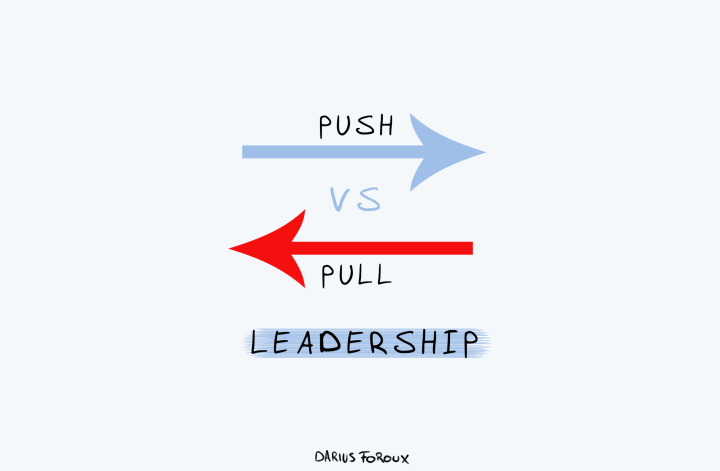Do you set high goals for yourself? If you’re ambitious, or if you simply want to do a lot of things in life — there’s something you might have experienced: Goals can sometimes be counterproductive.
I see it a lot with the highest achieving people. When you want to live a meaningful life, you quickly feel like you need to do a lot of things, and set many goals.
I also like to set a goal before I start something, so I know what direction I’m heading. Also, I love to plan my goals with the end in mind. When you start with the end in mind (your goal), you can easily trace it back to daily actions.
For example, when I started running, I set a goal: Run 30 minutes a day for six days a week. From there, I deconstructed my goal to smaller, and more achievable goals.
First, I walked for 30 minutes a day. Then, I walked for 20 minutes a day and ran the other 10 minutes. I continued that process until I ran for 30 minutes straight.
Or, let’s say that you’re an entrepreneur, and want to earn X amount of money per month. That means you have to sell X products/services. And if your conversion rate is, for example, 3.5%, you can quickly calculate how many calls/emails/interactions with prospects you need per day.
Now, that’s relatively straightforward.
But how about bigger or less specific goals?
Things like:
- “I want to make a million dollars before I’m X years old.”
- “I want to run a marathon this year.”
- “I want to have 10K followers by the end of this year.”
- “I want to be happy.”
- “I want to get married asap.”
You can only calculate or predict so much. There are limitations to goal setting.
I’ve adopted many strategies from Stoic philosophy. And one of the things that Stoic philosophers talk about is how we should only focus on the things we control.
In The Obstacle Is The Way, Ryan Holiday writes about the Stoic expression:
“Ta eph’hemin, ta ouk eph’hemin.” What is up to us, what is not up to us.
If you think about it, there’s only one thing that is up to us: Our actions.
Here’s a list of stuff you don’t control:
- The future
- Other people
- The economy
- Nature
But when you chase big goals that should happen in the future, you pretend like you do control those things. And that is exactly the danger of goal setting. We trick ourselves into believing that we can control the outcome of our lives.
That is a lie.
In a way, setting goals is a lie. But does that mean we should stop setting goals altogether? No, you’re not a Buddhist monk. Life is intended to be lived, and we should push our boundaries if we want to grow. Setting outrageous goals can sometimes help you to do that.
But, those goals become counterproductive when you experience setbacks.
Are you a failure if you only got 100 followers instead of 10.000? Or what if you didn’t run a marathon? Are you a loser if your marriage fails? Or if you’re not happy at a particular time in your life?
We’re our own worst enemy with accountability. We think in binary numbers. Black or white. You win or you lose.
And that often causes tunnel vision—we stare blindly on our goal, and when things don’t go our way, we experience stress. We worry about things we can’t control.
If you see that you can’t achieve your goals, don’t get stressed. Change your approach instead.
Goals serve a purpose, right? You want a sense of direction. Well, you can get that same outcome by having systems instead of goals.
Goal = Event in the future.
System = Recurring process.
Instead of focusing on the destination, focus on the process.
- Want to get rich? Add value to other people’s lives.
- Want to get recognition? Do great work.
- Want to win a race? Train hard.
- Want to be happy? Don’t take life too seriously.
Also, stop pursuing things you don’t need.
More is not always better, you know. Especially not when it comes to possessions, money, and status. Seneca put it best:
“It is not the man who has too little that is poor, but the one who hankers after more.”
Another thing: Change your expectations.
Recently I was talking to my friend Martijn, who’s a former pro-ice-skater. He has also coached Olympic athletes. We were talking about setting goals when he said:
“Many athletes set a goal to win a medal at the Olympics. But out of the thousands of athletes, in every sport, only a few qualify for the Olympics.
Now, let’s say you’re fortunate enough to qualify. When you start the Olympics, there are X amount of athletes who compete for the gold medal. Out of all those people, only 3 will get a medal. And only 1 person will get the gold medal.
Not everyone can be that 1 person.”
And yet, we all expect to achieve our goals. But just because you didn’t win or didn’t achieve your goals, it doesn’t mean you didn’t work hard.
That’s why I prefer to reward effort instead of achievement. To me, the effort is the real achievement. And luckily for you and me, the effort is one of the few things in life that we control.
So, no matter what you do, control your effort. That means; give it your all.




